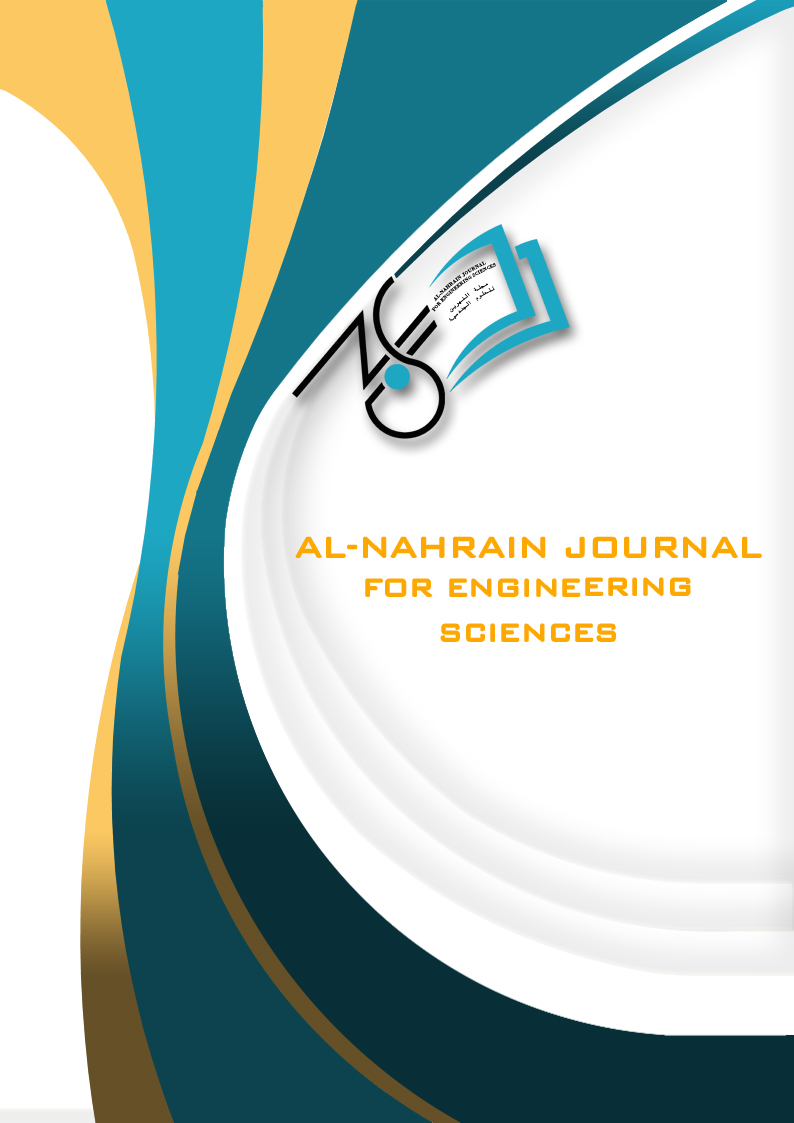White Laser in Ophthalmology
DOI:
https://doi.org/10.29194/NJES.28020276Keywords:
Slit Lamp, White Laser, Retinal Eye, And ImageAbstract
This research focuses on enhancing the diagnostic power of the slit lamp, a fundamental ophthalmic instrument, by replacing its traditional halogen light source with a cutting-edge white laser. The objective of this modification is to significantly improve the brightness, intensity, and color accuracy, which are crucial for distinguishing fine ocular details during eye examinations. White laser technology offers a more stable, energy-efficient light source with reduced maintenance needs, making it a valuable upgrade over conventional systems. As part of this redesign, the optical system will be optimized with new filters, lenses, and heat management techniques to accommodate the white laser. Additionally, integrating a high-resolution digital camera with the enhanced illumination system is expected to provide sharper, more accurate imaging for better diagnosis. The anticipated outcome is a transformative improvement in ocular diagnostics, leading to earlier and more precise detection of eye conditions. This advancement holds promise for both patients, through better care, and ophthalmologists, through increased diagnostic efficiency. Challenges in implementation and potential solutions are also considered.
Downloads
References
World Health Organization, “WHO releases new global estimates on visual impairment,” https://www.emro.who.int/control-and-preventions-of-blindness-and-deafness/announcements/global-estimates-on-visual-impairment.html, Accessed: Sep. 28, 2024.
A. Pathipati and J. Tsai, “Eye care industry analysis,” J. Acad. Ophthalmol., vol. 10, no. 1, Jan. 2018. doi:10.1055/s-0037-1620237 DOI: https://doi.org/10.1055/s-0037-1620237
Myopia Profile, “Understanding ocular wavefront aberrations,” https://www.myopiaprofile.com/articles/understanding-ocular-wavefront-aberrations, 2020.
S. Ruparelia, “A medical student’s guide to the slit lamp examination,” Dalhousie Med. J., vol. 49, no. 1, Feb. 2023. doi:10.15273/dmj.Vol49No1.11641 DOI: https://doi.org/10.15273/dmj.Vol49No1.11641
T. Kuriakose, “The slit lamp examination,” in Clinical Insights and Examination Techniques in Ophthalmology. Singapore: Springer, 2020, pp. 55–62. doi:10.1007/978-981-15-2890-3_6 DOI: https://doi.org/10.1007/978-981-15-2890-3_6
A. B. Biradar, A. Das, and A. Adeeb, “Slit lamp photography for objective assessment of topical eye disorders,” Indian J. Clin. Exp. Ophthalmol., vol. 7, no. 4, pp. 648–654, Jan. 2022. doi:10.18231/j.ijceo.2021.130 DOI: https://doi.org/10.18231/j.ijceo.2021.130
F. Fan, S. Turkdogan, Z. Liu, D. Shelhammer, and C.-Z. Ning, “A monolithic white laser,” Nat. Nanotechnol., vol. 10, no. 9, pp. 796–803, Sep. 2015. doi:10.1038/nnano.2015.149 DOI: https://doi.org/10.1038/nnano.2015.149
B. Chen, L. Hong, C. Hu, and Z. Li, “White laser realized via synergic second- and third-order nonlinearities,” Research, vol. 2021, Jan. 2021. doi:10.34133/2021/1539730
R. Paschotta, “Beam quality,” RP Photonics Encyclopedia, https://doi.org/10.61835/8mq, Accessed: Sep. 28, 2024. DOI: https://doi.org/10.61835/8mq
Y. Ye et al., “Resolution of slit-lamp microscopy photography using various cameras,” Eye Contact Lens Sci. Clin. Pract., vol. 39, no. 3, pp. 205–213, May 2013. doi:10.1097/icl.0b013e318286bc0f DOI: https://doi.org/10.1097/ICL.0b013e318286bc0f
J.-L. Basdevant and J. Dalibard, “Laser cooling and trapping,” in Springer eBooks: Introduction to Physics, Cham: Springer, 2019, pp. 199–209. doi:10.1007/978-3-030-13724-3_20 DOI: https://doi.org/10.1007/978-3-030-13724-3_20
B. Chen, L. Hong, C. Hu, and Z. Li, “White laser realized via synergic second- and third-order nonlinearities,” Research, vol. 2021, Jan. 2021. doi:10.34133/2021/1539730 DOI: https://doi.org/10.34133/2021/1539730
D. De Luca, I. Delfino, and M. Lepore, “Laser safety standards and measurements of hazard parameters for medical lasers,” Int. J. Opt. Appl., vol. 2, no. 6, pp. 80–86, Jan. 2013. doi:10.5923/j.optics.20120206.01 DOI: https://doi.org/10.5923/j.optics.20120206.01
C. Liu et al., “Novel bipolar-type direct AC–AC converter topology based on non-differential AC choppers,” IEEE Trans. Power Electron., vol. 34, no. 10, pp. 9585–9599, Oct. 2019. doi:10.1109/TPEL.2018.2890581 DOI: https://doi.org/10.1109/TPEL.2018.2890581
H. Alwazani, S. Bahanshal, and M. A. Majid, “Design of YAG coated laser diode driver with feedback mechanism,” in Proc. ICCISCI, Apr. 2019. doi:10.1109/ICCISCI.2019.8716407 DOI: https://doi.org/10.1109/ICCISci.2019.8716407
M. Micic, P. Atanasijevic, and P. Mihailovic, “Laser diode driver on a programmable system on a chip,” Rev. Sci. Instrum., vol. 95, no. 3, Mar. 2024. doi:10.1063/5.0184666 DOI: https://doi.org/10.1063/5.0184666
A. Kakehashi, M. Takezawa, and J. Akiba, “Classification of posterior vitreous detachment,” Clin. Ophthalmol., Dec. 2013, p. 1. doi:10.2147/OPTH.S54021 DOI: https://doi.org/10.2147/OPTH.S54021
K. Thyagarajan and A. Ghatak, “Properties of lasers,” in Graduate Texts in Physics, Cham: Springer, 2010, pp. 263–275. doi:10.1007/978-1-4419-6442-7_10 DOI: https://doi.org/10.1007/978-1-4419-6442-7_10
T. Gfroerer and M. Bergthold, “Laser diode coherence,” Am. J. Phys., vol. 88, no. 9, pp. 740–745, Sep. 2020. doi:10.1119/10.0001487 DOI: https://doi.org/10.1119/10.0001487
N. Kakitsuba, “Comfortable indoor lighting conditions for LED lights evaluated from psychological and physiological responses,” Appl. Ergon., vol. 82, art. 102941, Jan. 2020. doi:10.1016/j.apergo.2019.102941 DOI: https://doi.org/10.1016/j.apergo.2019.102941
Downloads
Published
Issue
Section
License
Copyright (c) 2025 A. M. Issa, Z. T. Al-Dahan, A. F. Al-Jashaami

This work is licensed under a Creative Commons Attribution-NonCommercial 4.0 International License.
The authors retain the copyright of their manuscript by submitting the work to this journal, and all open access articles are distributed under the terms of the Creative Commons Attribution-NonCommercial 4.0 International (CC-BY-NC 4.0), which permits use for any non-commercial purpose, distribution, and reproduction in any medium, provided that the original work is properly cited.














